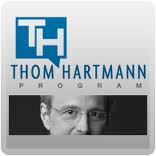 A proposed ballot initiative would gradually raise Washington DC's minimum wage to $15 by mid-2020.
A proposed ballot initiative would gradually raise Washington DC's minimum wage to $15 by mid-2020.
It would also help tipped workers, such as waiters and bartenders, eventually get paid the full minimum wage, instead of the $2.77 subminimum wage.
This proposal would raise wages for 114,000 working people—about 14 percent of all D.C. workers, and over one-fifth of D.C. private-sector workers.
Once the minimum wage reaches $15, the average affected worker would earn roughly $2,900 more each year than he or she does now.
The is not the stereotype of low-wage workers being teenagers working to earn spending money.
The ones who would benefit are overwhelmingly adult workers, and are supporting families of their own.
Raising the D.C. minimum wage to $15 by 2020 would lift wages for 114,000 working people
By Thom Hartmann A...



